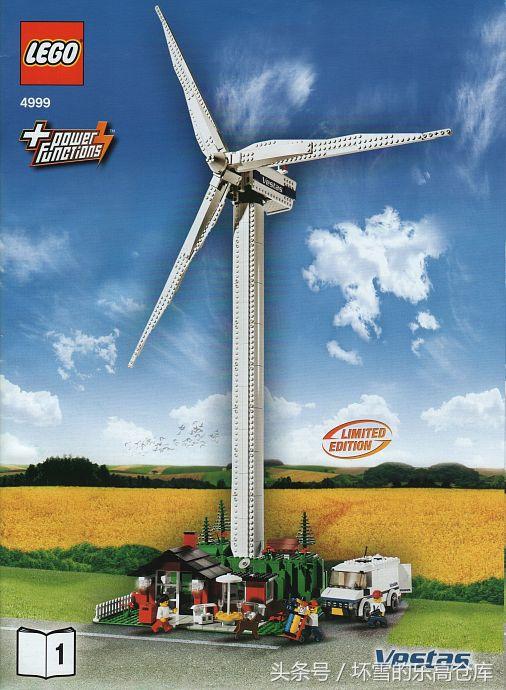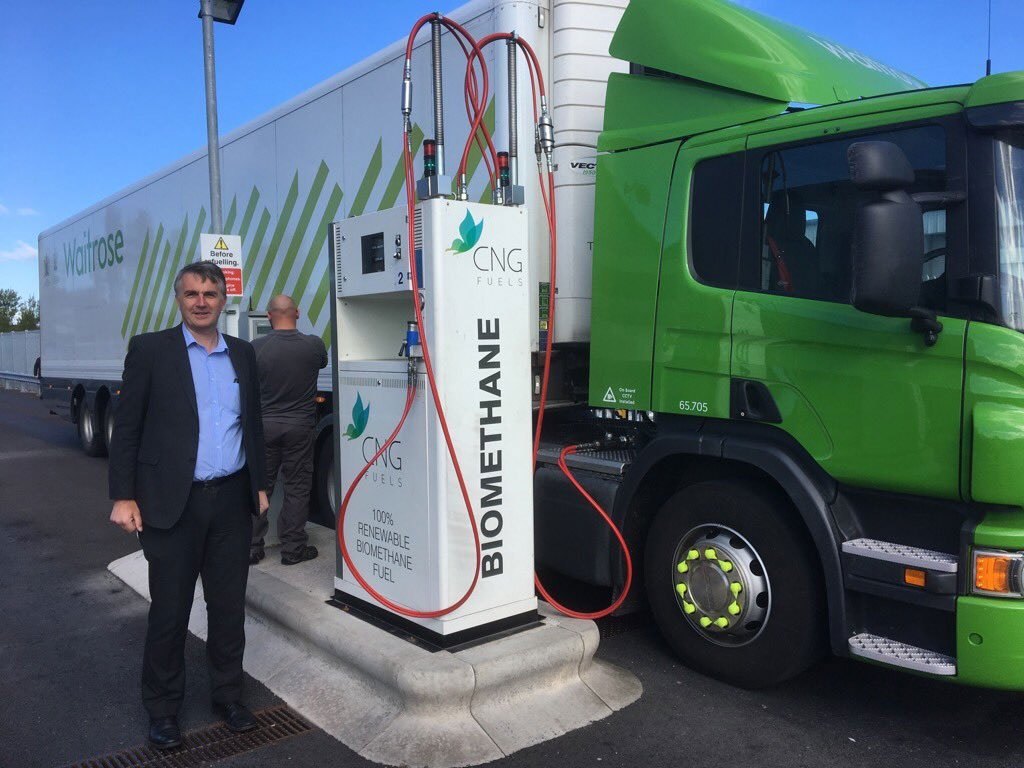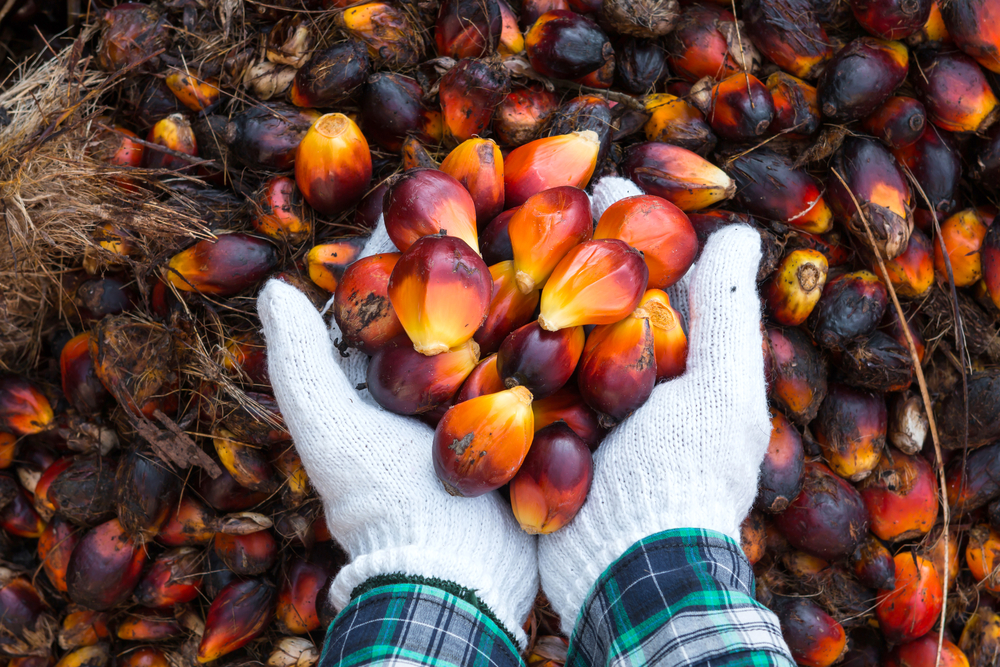M&S, Target join Cotton 2040, Lego hits 100% renewables, Tesco sets science-based target, Waitrose moves on biomethane, Goodhope promises palm traceability, Smurfit Kappa close to 2020 goals
M&S and Target in sustainable cotton push
MARKS & SPENCER and Target have joined Cotton 2040, a new cross-industry initiative to make sustainable cotton a mainstream commodity.
The platform, convened by sustainability non-profit Forum for the Future, with support from the C&A Foundation, is driving change in the cotton supply chain by taking collaborative action, including producers and existing industry initiatives. These include the Better Cotton Initiative and Cotton Made in Africa (CMiA), the Fairtrade Foundation, Cotton Connect, IDH, Cotton Australia, Value Added in Africa and Organic Cotton Accelerator as well as the London College of Fashion.
Priority actions include building demand within the fashion and apparel industry, closing the loop by scaling up cotton recycling, building greater visibility and transparency throughout the cotton value chain, and building resilience among smallholder cotton farmers.
Sally Uren, CEO of Forum for the Future, said: “Past debate around sustainable cotton standards and industry initiatives has at times been polarising, but we know to make effective progress we need to work together. At Forum we believe that collaborative action is essential in order to address complex issues that no one entity – whether a business, standard, consumer group, NGO or government – can tackle alone.”
Leslie Johnston, executive director of C&A Foundation, said: “Cotton 2040 is not a new platform, but a smart way to accelerate the many good initiatives out there working to mainstream more sustainable cotton. Together, we can be more than the sum of our parts and jointly tackle the effects of one of the world’s thirstiest crops.”
Lego hits 100% renewable target

LEGO GROUP has hit its 100% renewable energy goal three years early with the opening of the 258MW Burbo Bank offshore wind farm in Liverpool Bay.
The toy giant confirmed this week that it has “balanced” its annual power demand by sourcing the same amount of electricity from renewable sources.
LEGO’s parent company KIRKBI A/S holds a 25% stake in the Burbo Bank Extension project. It has invested DKK6bn ($895m) in two offshore wind farms over the past four years and has supported the development of more than 160MW of renewables capacity since 2012.
"We work to leave a positive impact on the planet and I am truly excited about the inauguration of the Burbo Bank Extension wind farm," said Bali Padda, CEO of the LEGO Group. "This development means we have now reached the 100% renewable energy milestone three years ahead of target. A spokesman said the company is also working to improve the energy efficiency of its operations and invest in onsite renewables, including installing 20,000 solar panels at one of its factories in China.
Meanwhile, Tetra Pak said it now uses renewable electricity for more than a third of its total annual consumption worldwide, up from 22% in 2015. Key to this was the purchase earlier this year of international renewable energy certificates (I-RECs) for all its production facilities in China.
Charles Brand, executive vice president, product management and commercial operations at Tetra Pak said: “We joined the RE100 last year as a part of our commitment to tackle climate change, pledging to use 100% renewable electricity across all our operations by 2030. This move in China, where we have the largest production footprint, is a solid step forward as we stride towards that goal.”
Tesco commits to 1.5C science-based target

UK FOOD GIANT Tesco has announced tougher, science-based carbon reduction targets for its stores and distribution centres to help combat climate change.
Kene Umeasiegbu, head of climate change and sustainable agriculture, said in a blog that Tesco would commit to 100% renewable electricity by 2030 as part of its new targets, which are in line with limiting global temperature rises to the more ambitious level of 1.5C agreed in the Paris Agreement.
He pointed out that Tesco’s previous goal, set 10 years ago, to halve emissions per square foot of its estate by 2020 “does not put us on track to becoming a zero-carbon business by 2050. So today we publish tougher targets to help Tesco contribute to limiting global temperature rises to 1.5 degrees. … Our new targets are to achieve absolute reductions, based on 2015 levels, of 35% by 2020, 60% by 2025 and 100% by 2050.”
He said the interim milestone is to source 65% renewable electricity by 2020, a switch it has already begun in UK and Thailand, its two biggest markets.
Myles McCarthy, director of implementation at the UK’s Carbon Trust, said Tesco’s alignment with the 1.5C target instead of 2C was a first. “At a time when government commitments on climate change lag significantly behind what is needed to deliver on the Paris agreement, Tesco deserves real credit for being the first corporate to publicly commit to align with a high-ambition 1.5C target.”
Waitrose to run 50 lorries fuelled by food waste

WAITROSE expects to have 50 100% biomethane gas-fuelled trucks by the end of year, in an effort to lower emissions from its 500-strong fleet.
The fuel, compressed natural gas made derived from food waste and emits 70% less CO2 on a wheel to wheel basis than diesel, according to CNG Fuels. It is also 35%-40% cheaper to buy than diesel, though the vehicles themselves cost 50% more in upfront costs.
The John Lewis-owned company has been operating 12 CNG biomethane fuel trucks since January 2017. John Lewis’ general manager of central transport, Justin Laney, told Edie that the company aims to buy 40 more by the end of this year and a similar number next year as part of a government-funded project.
Palm oil giant Goodhope sets deadline for traceability

GOODHOPE ASIA HOLDINGS, which was issued a stop-work order by the Roundtable on Sustainable Palm Oil earlier this month, has issued a new sustainability policy, setting itself a deadline of 4 May 2019 to achieve full traceability of its supply chain, Mongabay.com reports.
As a member of the RSPO, the Singapore-based firm is prohibited from clearing virgin rainforests and deep peatlands. But earlier this month the RSPO froze Goodhope’s operations on seven concessions in Indonesia after it had been linked to various cases of environmental and human rights abuses, including allegations of grabbing land from an indigenous community in Papua province.
Under the RSPO’s New Plantings Procedure, companies must submit documentation prior to any establishment or expansion of a plantation. But the requirement is commonly ignored, with few if any consequences, Mongabay reports. RSPO’s stop-work order against Goodhope was lauded by environmental watchdogs as the kind of thing the RSPO must do if it wants to be perceived as credible.
Smurfit Kappa near 2020 sustainability goals

SMURFIT KAPPA is close to meeting its ambitious 2020 sustainability goals, according to its tenth annual sustainability report. In the decade since the Irish paper packaging giant started formally measuring its sustainability impact, Smurfit Kappa reached full chain of custody certification for its entire raw material supply chain. It has cut CO₂ emissions by 23% (against a 25% target) and improved the quality of its discharge water by 32%,a whisker from its 33% target for 2020.
The report shows that over the past 10 years Smurfit Kappa has also achieved a significant reduction in the amount of waste sent to landfill and has invested €60 million in water treatment plants.
“Smurfit Kappa is playing its part in creating a sustainable future by building a profitable business based on sustainable principles. We will continue to pioneer innovative ways to be sustainable to create value for both our customers and shareholders,” said Tony Smurfit, group CEO.
See Smurfit Kappa’s zero-waste alchemist, part of Ethical Corporation’s five-part briefing on the companies leading the circular economy. Tony Smurfit will be speaking at Ethical Corporation’s Responsible Business Summit Europe event in London on 7-8 June.

